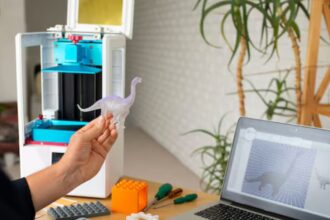In the bustling world of commercial kitchens, where timing, food safety, and operational efficiency are vital, the commercial refrigerator is the unsung hero of daily service. Whether you operate a fast-paced restaurant, a catering company, or a bakery, choosing the right commercial refrigerator and understanding how to maintain it can directly impact your food quality, energy costs, and bottom line. This guide breaks down the major refrigerator types, common issues, and actionable commercial refrigerator repair tips every kitchen team should know.
1. Understanding Commercial Refrigerator Types
Commercial refrigerators are purpose-built to handle the demands of high-volume kitchens. Their rugged construction and specialized features distinguish them from residential models. Below are the most common refrigerator types and their best-use scenarios:
- Reach-In Refrigerators
- Upright models with one to three doors.
- Used for general food storage and placed in prep or cook lines.
- Often found in all types of kitchens for versatile use.
- Undercounter Refrigerators
- Compact units designed to fit under countertops.
- Ideal for storing prep ingredients and keeping essential items within arm’s reach.
- Common in bars, cafes, and small restaurants.
- Walk-In Coolers
- Large, insulated rooms that act as cold storage.
- Best for bulk ingredient storage, particularly in high-volume kitchens.
- Enable proper inventory organization and cost savings.
- Prep Tables (Sandwich/Salad Units)
- Feature top compartments for ingredients and a cutting surface.
- Combine storage and prep, boosting speed and efficiency in fast-casual environments.
- Display Refrigerators
- Designed for customer-facing environments.
- Keep products visible and accessible in bakeries, delis, and grab-and-go stations.
- Bar Refrigerators and Beverage Coolers
- Specifically engineered for chilled drinks.
- Offer quick access to beer, wine, or soda behind the bar.
Each refrigerator type is engineered for a specific function, and choosing the right one can streamline workflow, reduce spoilage, and ensure health code compliance.
2. Core Functions and Importance of Commercial Refrigerators in Professional Kitchens
A commercial kitchen relies on refrigeration for much more than cold storage. These units support:
- Safe ingredient storage: Proper temperature control minimizes bacterial growth.
- Separation of raw and cooked foods: Helps prevent cross-contamination.
- Staging and holding of prepped dishes: Supports smooth service during peak hours.
- Cold beverage access: Speeds up bar service.
- Extended shelf life: Reduces food waste and saves on costs.
- Compliance with health codes: Properly functioning refrigerators help meet local regulations.
In larger operations, multiple units or a combination of different types may be used in zones (prep, cook, serve, clean) to maximize kitchen flow.
3. Common Issues in Commercial Refrigerators and How to Repair Them
Even the best equipment occasionally fails. Recognizing symptoms early and applying basic commercial refrigerator repair steps can prevent major breakdowns. Here are common problems and how to address them:
- Unit Not Cooling Properly
- Check:Thermostat setting, door seals, condenser coils.
- Fix:Ensure thermostat is correctly calibrated. Clean dirty coils and replace damaged door gaskets.
- Excessive Frost or Ice Buildup
- Check:Defrost system and door closure.
- Fix:Inspect and repair defrost timer or heater. Ensure doors close fully.
- Water Pooling Inside or Beneath Unit
- Check:Drain tube and pan.
- Fix:Clear clogs with a pipe cleaner or replace cracked drain pans.
- Strange Noises
- Check:Fan blades, motor, compressor.
- Fix:Tighten loose parts, clean fan blades, and replace worn bearings.
- Fridge Constantly Running
- Check:Door seal integrity and thermostat accuracy.
- Fix:Replace faulty thermostat and reseal gaskets.
Always shut off power before attempting repair and consult your user manual. For persistent issues, contact a certified commercial refrigerator repair technician.
4. Preventive Maintenance Tips for Longevity and Performance
Routine care can extend the lifespan of your commercial refrigerator and help prevent costly breakdowns. Here are best practices every kitchen should follow:
- Monthly condenser coil cleaning: Use a soft brush or vacuum.
- Inspect door gaskets weekly: Replace if cracked or no longer sealing.
- Check thermostat calibration: Use a fridge thermometer to confirm accuracy.
- Avoid overloading shelves: Airflow is crucial for temperature stability.
- Wipe down interior surfaces regularly: Reduces odor and bacterial buildup.
- Schedule professional servicingevery 6-12 months for full diagnostics.
Keeping a maintenance log and training staff on daily checks can also prevent downtime.
5. How to Choose the Right Commercial Refrigerator for Your Kitchen
Selecting the right refrigerator type depends on several important factors:
- Kitchen size and layout: Measure available space and consider workflow.
- Menu complexity: More ingredients may require larger or multiple units.
- Energy efficiency: Look for ENERGY STAR-rated units to save on utility bills.
- Type of operation: A quick-service deli will need different refrigeration than a fine-dining restaurant.
- Brand reliability and service: Choose reputable brands with accessible commercial refrigerator repair
Investing in the right equipment can improve speed, safety, and savings over the long term.
6. When to Call a Commercial Refrigerator Repair Technician
While simple maintenance and troubleshooting can be handled in-house, some issues need a trained eye. Call a certified repair tech when:
- The unit won’t power on.
- Food is consistently spoiling or thawing.
- You hear loud, irregular noises.
- Compressor or motor shows signs of failure.
- Digital display errors persist.
Timely service avoids food loss, protects your brand’s reputation, and ensures health code compliance.
Conclusion
Every commercial kitchen depends on reliable cold storage. Understanding the right refrigerator type, staying alert to early warning signs, and following a simple maintenance schedule can make the difference between smooth service and serious disruption. When problems do arise, quick and informed commercial refrigerator repair decisions protect your investment and keep your kitchen running at full speed.
Whether you’re upgrading an old unit, expanding your operation, or troubleshooting common issues, this guide can serve as a foundation for making smarter refrigeration choices in your business.

















